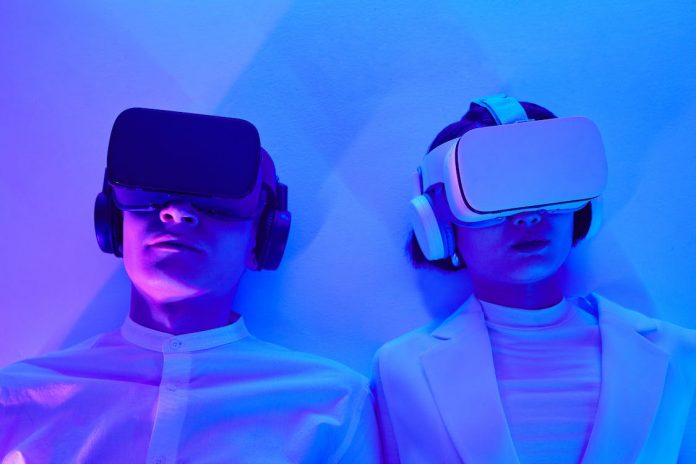The evolution of sex toys from medical devices to pleasure suppliers has reached its post-modern age, in which the ambitions of innovators for intimacy aides have perhaps superseded the initial intention of the development. From strokers, to clit-suckers, to sex machines, to ChatGPT-powered fantasy-whispering vibrators, pleasure-seekers, regardless of their anatomy, have their orgasms guaranteed. But as toy companies race towards the next big thing, the biggest and surest “O” — once, a sure sign of understanding the wants and needs of another — is becoming hyper-robotic.
Now, devices such as the Autoblow AI+, which predict and satisfy all of the (penis-having) user’s needs, or the same inventor’s Automoblow, which jerks off the penis-having person in the driver’s seat from the cupholder of their auto-driven Tesla, offer the especially wealthy a replacement of intimacy without all the strains of a relationship. In the era of toxic/cancel culture and high-tech suppliers for an apparently autonomous fulfillment of basic human needs, are the days of just talking to her over?
Some developers are so concerned with ‘how’ to do the next big thing, they lose track of the ‘why’. Why power the development of the next big male masturbator — why funnel the funds of ingenuity into pleasure while other fellows lack housing security and food? And is pleasure — is ejaculation, reduced to such — that primal of a need? Or have we wandered from what we needed to stick a landing on the moon? or — to be crass — to stick our dicks into something which doesn’t talk back?
The New York Post reports that a former senior executive at Google, Mo Gawdat, predicts sex robots powered by artificial intelligence could eliminate the need for human partnership entirely.
Gawdat, previously chief business officer for Google’s research-and-development arm “X,” asserts with a scientist’s delight that artificial pleasure devices which incorporate AI are advancing in their simulated realities to become almost indistinguishable from an actual sexual encounter, and that AI-generated orgasms will bring a total “redesign of love and relationships.”
Human beings are already able to simulate sex through virtual reality, but Gawdat says that the ever-increasing technological advances will soon enable computer-controlled systems to convince the human brain that their AI love servant is the real deal.
“Just think about all of the illusions that we’re now unable to decipher,” Gawdat muses. “If we can convince you that this sex robot is alive, or that sex experience in a virtual reality headset or an augmented reality headset is alive, it’s real, then there you go.

“If we think a few years further and think of Neuralink and other ways of connecting directly to your nervous system, why would you need another being in the first place?” Gawdat continues. “You know, that’s actually quite messy,” he says, referring to human relationships.
Gawdat disregards debates over whether AI-powered sexbots can be considered “sentient,” arguing that sentience (the ability to consent?) is irrelevant if the human brain experiences it as real.
“Once again, there is that huge debate of whether they are sentient or not,” Gawdat huffs. “Does it really matter, if they’re simulating sentientism so well? Does it really matter if the Morgan Freeman talking to you on the screen is actually Morgan Freeman or an AI-generated avatar, if you’re convinced that it is Morgan Freeman? We get lost in those conversations of are they alive, are they sentient? Doesn’t matter. If my brain believes they are, they are.”
Literally balls-deep in the simulation, the highest level of fantasy is possible, and it’s en route to supplant the frustrating struggles of human love, according to Gawdat. The pioneer thrills in that even the mental and emotional stimuli occurring in intimacy will inevitably be replicated artificially.
“It’s all signals in your brain that you enjoy companionship, and sexuality, and — if you really want to take the magic out of it — it can be simulated,” he says.
But, putting aside human conquest for just a breath…What happens to human empathy, for instance, when a robot can better understand you, because it literally reads your wants and needs in your mind? How do you still talk to her, him, them — whoever they are, out there — if you no longer need to? And not just lovers — how will we manifest compassion for any of our fellows when the privileged among us (or potentially all of us, one day) are served effectively by robot slaves?
In our tech-horny power-climb to be “first” in marking our revolutionary product, what if empathy slips away with intimacy? Are we still human, if our lovers aren’t?














You must be logged in to post a comment.